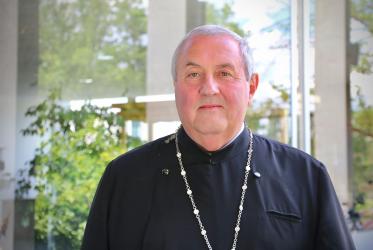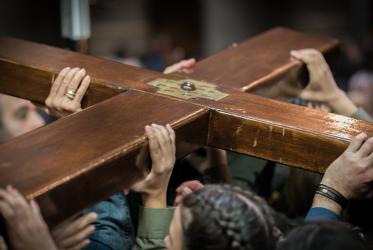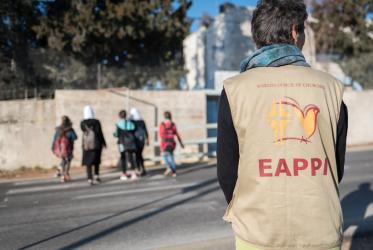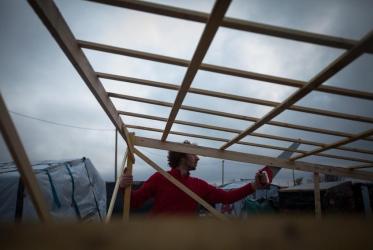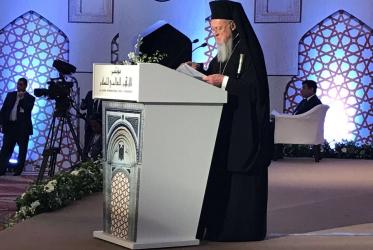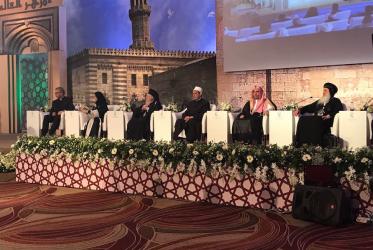Displaying 1 - 20 of 26
In Lebanon, “without peace there is no justice”
21 July 2021
Dr Saïd Ailabouni: God is on the side of rejected, oppressed, occupied
12 September 2019
WCC condemns attack on Christians in Egypt
02 November 2018
How can you help refugees?
11 October 2018
Broken glass of hope grown out of rubble
16 July 2018
WCC reiterates calls for immediate ceasefire in Syria
16 April 2018
WCC decries violence on Israel-Palestinian border
31 March 2018
Bossey students speak as one on fostering peace
14 July 2017
From Bethlehem, WCC general secretary: “Together we are stronger”
08 December 2016
